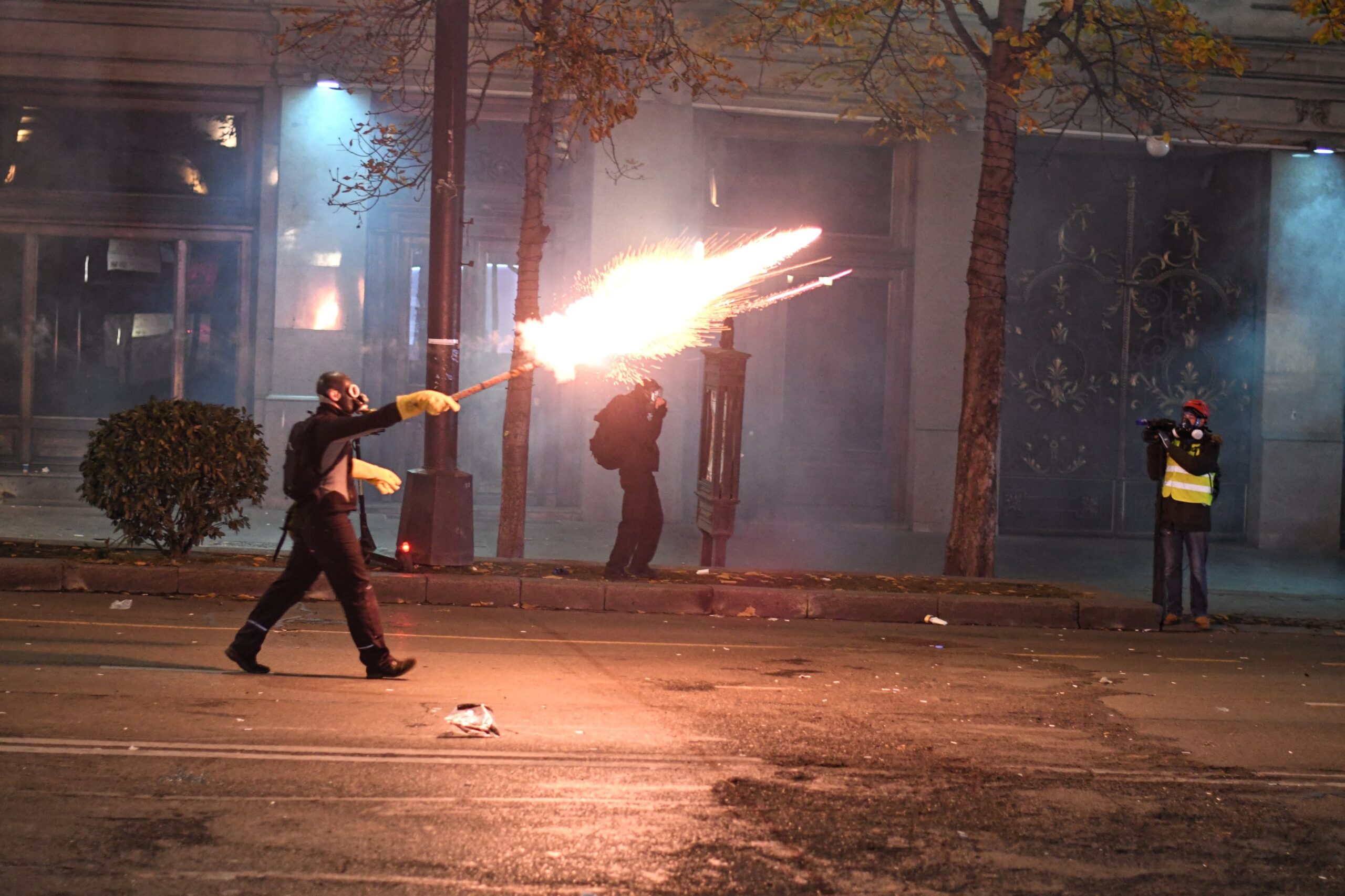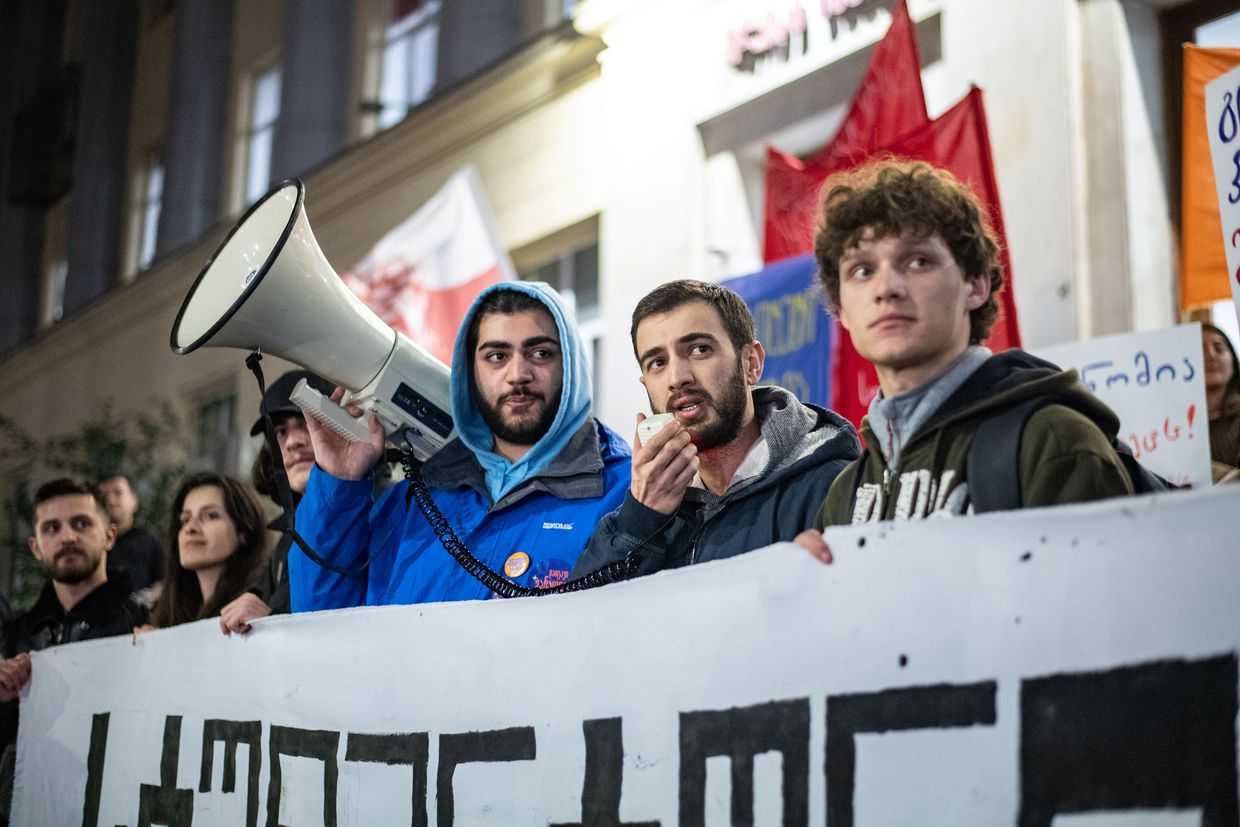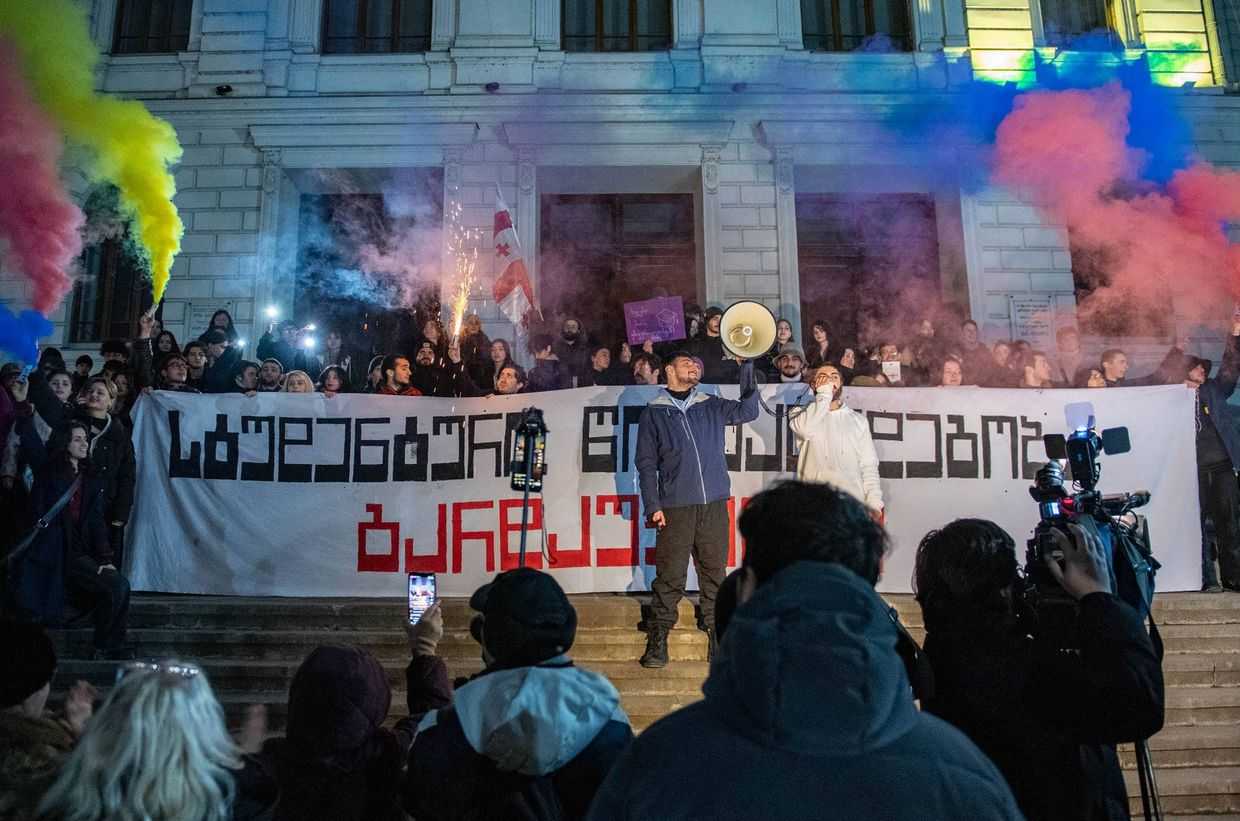Parliament employees claim their department is closing due to criticism of Georgian Dream policies

Three employees of the Research Center of the Georgian Parliament announced on Tuesday that, due to their public criticism of the ruling party’s policies, the management decided to shut down the centre, leaving its 20 staff members without a job.
Nini Lezhava, Salome Natroshvili, and Mariam Chachua are among the five representatives of the research centre who signed an open letter in early December, criticising the suspension of Georgia's EU membership bid and the violence against demonstrators.
On Monday, RFE/RL published an interview with all three, where they discussed the ‘hostile environment’ created at their workplace following their signing of the petition. They also condemned legislative changes enacted alongside the ongoing pro-European demonstrations, which critics argue are aimed at purging public sector employees whose political views differ from those of the ruling party.
According to the three ex-employees, their supervisor, Ekaterine Kardava, informed the staff during a meeting on the following day of the decision to liquidate the center. Shortly after, the three gave a joint statement to journalists outside the parliament building.
‘The centre’s director said that the decision was based on the public activity of five center members who signed a joint statement by public sector employees’, Lezhava, Natroshvili, and Chachua stated.
They viewed the decision as ‘another manifestation of repression against conscientious public sector employees and an attempt to instill fear’ among them.
Chachua said that the interview given to RFE/RL was ‘the last straw’ for the leadership. In the interview, the employees explained that after signing the petition, the attitudes of the centre's head and some colleagues towards them turned negative, and in some cases, communication completely stopped.
‘Our interview for RFE/RL was discussed in the meeting; [It was asked] why we felt we were in a hostile environment and that we offended other employees [by this remark]’, Chachua added.
The trio emphasised that the management could have simply dismissed those who had signed the petition, but instead decided to shut down the entire centre. They claimed that it was part of a larger plan to create internal division, so that all the employees of the now liquidated centre would blame the signatories for the loss of their jobs.
‘This creates an image of us as enemies’, Chachua added.
Natroshvili said that her boss had told her she is engaging in her own ‘self-destruction’ through her activities.
‘I don't think I am engaging in self-destruction. Neither I nor my colleagues are’, Natroshvili said.
As the three employees stated, they are still holding their positions at work since they have not yet received the official order to close the centre. They also announced the plan to pursue legal action in protest of the decision.
The parliament's press office has not provided a public comment on the closing of the centre, and OC Media has reached out to Kardava, but has not received an answer.
The Parliamentary Research Centre, founded at the end of 2018, prepares analytical research papers for members of parliament, including on international practices in various fields. According to the parliament’s website, the centre covers five main areas, including social issues, economic matters, international relations, defence and security, as well as law.
‘Self-cleansing process’
Recently, several public officials have stated that they were dismissed from their positions due to publicly expressed criticism of the ruling party's policies.
This was preceded by rare dissent, during which employees from various government bodies, including the Ministry of Internal Affairs, the Ministry of Defence, the Ministry of Foreign Affairs, the Ministry of Education, the Tbilisi City Hall, and others, publicly criticised the government’s decision to halt Georgia’s EU membership bid.
A joint statement from public sector employees was also published, opposing the suspension of European integration and the violence against demonstrators, which has over 450 signatories, including employees of the Parliament Research Centre.
Representatives of Georgian Dream quickly criticised the protest, with Prime Minister Irakli Kobakhidze referring to it as a ‘self-cleansing process’ and stating that ‘all actions will be appropriately responded to in accordance with the Constitution and the law’.
Tbilisi Mayor Kakha Kaladze described the protest by some municipality employees as an ‘attempt at sabotage’, emphasising that it ‘will not go unanswered’.
Soon after, Georgian Dream announced and then passed legislative changes that simplify reorganisation of public services. The ruling party explained this decision with the desire to ‘revitalise’ the public sector, but concerns quickly arose that the ruling party’s ‘revitalisation’ efforts might involve politically cleansing public services.











